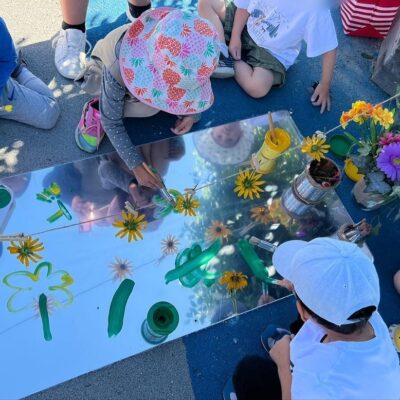Even though genetics plays a huge role in a child’s cognitive abilities, the activities in which the child engages can also have a significant effect. As a child grows, especially in the period between their birth to the time they celebrate their 5th birthday, their brain goes through immense development. This rapid brain development has a lasting effect on their ability to learn. It’s therefore important to ensure that a child engages in activities that promote cognitive development. In this article, we discuss the activities that children can engage in to promote preschool cognitive development.
Activities to promote preschool cognitive development
Preschools employ many activities, both physical and mental, that can help in the development of the different cognitive abilities of a child. Some of these activities include:
1. Physical activities
Children have a lot of energy. Physical activities will not only aid in using up this energy but may also help in the development of cognitive abilities. Some of the physical activities that children can engage in may include:
- Drawing and painting: Drawing and painting allow children to express their ideas, thoughts, and feelings freely. These activities also enhance a child’s motor skills from a very early age, as they learn how to grip pencils or paint brushes in their hands and master their eye-hand coordination. Producing artwork can also help to enhance their creativity and self-confidence.
- Running and jumping: Exercise plays a fundamental role in the development of a child’s brain. Engaging in running, jumping, and other physical exercises can help children improve their coordination and concentration. Children who engage in strenuous activities tend to have a longer attention span.
- Playing with toys: Learning through toys is an important aspect of a child’s development. They encourage a child to be creative and come up with their own ideas and patterns. Playing with toys can also help a child learn to identify and distinguish different colours.
- Sorting objects: Sorting can help children develop executive function skills. It helps children learn how to identify and categorize objects and develop early numeracy skills. This can enhance their brain memory, improve their attention span, and promote problem-solving.
- Gluing and sticking: Besides learning the concept of stickiness, binding objects together and sticking them to walls can greatly improve the motor skills of a child. It may also enhance their eye-hand coordination.
2. Mental activities
Mental activities can help promote the psychological and physical well-being of a child. These activities are essential, as they enable a child to develop their ability to learn new things and memorize them. Some mental activities that children can engage in include:
- Playing simple card games and putting together puzzles
- Reading books and reciting nursery rhymes that involve sounds and actions
- Singing simple songs
- Hiding and finding objects
- Practising letters and numbers
3. Music lessons
Music is one of the most effective tools in helping children boost their cognitive abilities because it stimulates both sides of the brain. Music lessons can help children learn how to process and identify different sound patterns and respond to rhythms. Reading music can also help them improve their reading and comprehension skills. Studies show that children who take music lessons have better verbal abilities, memory skills, attention spans, and critical thinking skills. Exposing children to music can also help improve their listening skills.
Are you looking for a preschool in Surrey, BC?
Rothewood Academy Early Learning centres understand the importance of developing a child’s cognitive abilities at an early age. Our preschool curriculum integrates various activities that can enable your child to learn and play as they grow both mentally and physically. Our state-of-the-art academy has a team of well-trained early educators that will support your child during this crucial age.
Fill out our contact form to learn more about us or schedule a tour.

